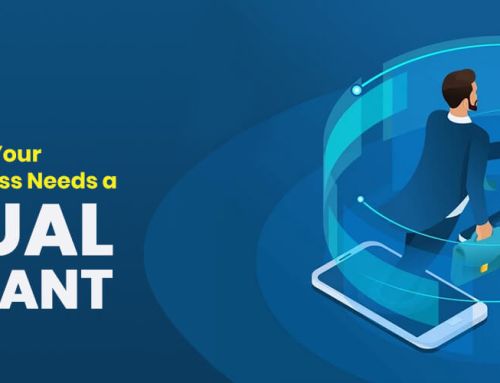Despite automation and the emergence of artificial intelligence (AI), many customers prefer talking to a live customer support agent. The speech analytics market is even expected to register a CAGR of 15.61% by 2028.
So, if you want to improve your customer experience, your best bet would be to use this technology in your contact centers.
In this article, we will go over what speech analytics is and how it can benefit your call centers.
Let’s get started!
What is speech analytics?
Speech analytics is the process of analyzing the conversations between customer support and callers to assess quality, detect emotions, and monitor agent performance.
The analysis usually relies on technology to screen the vast number of calls. Some software uses AI and machine learning to process and analyze large amounts of data.
The technology works by:
- Identifying keywords, phrases, and emotions,
- Comparing them to specific rules, and
- Flagging calls that need follow-up or further analysis.
There are two types of speech analytics:
Post-call
The calls here are listened to and analyzed after they have already occurred. It identifies specific patterns and trends to uncover pain points and unmet needs that made the customers call support.
Real-time
Here, live calls are analyzed for keywords, phrases, or specific vocal tones and inflections. It is used to improve the one-on-one experience between customer support and callers. For example, it prompts resolutions based on the ongoing conversation or notifies managers when a call agent needs help.
Each of these can be used independently, but using a combination of the two can improve the customer experience and efficiency.
How does speech analytics benefit call centers?
Speech analytics is becoming more popular because it can capture, analyze, and generate reports on support calls. Moreover, businesses still use live agents, as many customers feel more satisfied when talking to them.
An AWS survey found that respondents’ satisfaction with live call agents was 6.7 times more than their dissatisfaction. It may be because customers need the call agent to have empathy and respond in a way that will make them happy.
With that said, here are some of the main benefits of using speech analytics in your call center:
Improves customer satisfaction
Analytics tools can identify customer sentiment and alert agents about their emotional state. Agents can use this information to give the appropriate response and create a positive customer experience.
For example, post-call analysis can analyze calls to reveal trends that cause customer frustration. Using real-time analysis, the software can use this information to identify similar calls and prompt agents to respond accordingly.
You can also use speech analytics to detect problem areas in your customer service and identify ways to improve your offerings.
Assures call quality
Most call centers ensure standards by training agents and giving them scripts, and etiquette regulations. With speech analytics, you can track the interactions to check for deviations and the use of inappropriate language. You can prompt the agents to stick to their scripts and specific phrases.
This technology is vital now that many agents are working from home. It also helps identify areas for improvement and makes it possible for your agents to maintain a professional image.
Helps protect customer data
Analytics also helps businesses protect their customers’ personal data. With real-time analytics, they can flag unnecessary demands and requests made by the agents for review with the managers. This comes in handy in the banking, healthcare, and insurance industries, where customers may be asked to share sensitive data.
Increases data processing capacity
Manual analysis can take a long time, and the quality teams can screen only a few calls over a specific period. As speech analytics mainly relies on technology, you can review large volumes of calls after they are over and in real-time.
AI-powered tools make it easier to identify trends and develop solutions on the spot.
Automates agent scoring
Apart from monitoring agents, speech analytics can automatically assess and score the calls. The tools analyze all interactions and look for non-compliance and harmful language. It helps increase agent compliance and reduces the risk of fines and litigation.
You can also use it to identify top performers and detect potential coaching moments.
Improves agent performance and resolution rates
AI-powered speech analytics tools constantly retrain and improve their analysis models. This allows them to always offer fresh insights to agents. It helps them improve their performance and resolution rates by:
- Identifying recurring customer queries and assisting agents to hasten routine activities through automation.
- Suggesting answers to common customer queries for quicker first-contact resolutions.
- Helping agents identify issues in speech and communication – like a nervous stammer – so they can improve themselves.
- Freeing up time for agents to focus on complex tasks that require critical thinking and empathy.
Detects potentially problematic callers
Speech analytics can also help identify problematic callers. These could be those who hurl abuse, ask for refunds, inquire about customer service, etc.
The software converts audio data into keywords and phrases using NLP and AI. These keywords are then compared to a database of keywords to detect bad or good experiences. This way, it can help agents identify problematic callers so they can deal with their concerns and avoid possible disruptions.
Identifies opportunities for cross-selling and upselling
Speech analytics can help you identify upselling and cross-selling opportunities to boost revenues. It helps develop personalized upsell and cross-sell pitches for each customer’s unique demands.
This tool also helps agents transition to a new product or service. It benefits new agents who have yet to become familiar with your product line or the upselling/cross-selling script.
Instantly gather feedback
Many customers tell you precisely what they think of your products, services, practices, and policies during calls.
You can gather customer feedback from them without formal surveys through speech analysis. It works by analyzing what the customer says while interacting with the agent on the phone.
AI-powered software can also detect customer sentiment to determine their satisfaction levels. It helps overcome gaps in traditional survey techniques, offering more reliable ways to measure, report, and increase customer satisfaction.
Helps train call center employees
Speech analytics transcribes, analyzes, and stores call recordings. You can sort through these stored conversations to extract critical data. With the analysis, you can periodically coach call agents on how to successfully and effectively deal with customers.
Final thoughts
Speech analytics is marvelous as it allows you to sort through vast amounts of data quickly. With this tool, it is possible to listen to and analyze 100% of the calls that come into a call center.
With the addition of machine learning and AI, the capabilities and accuracy of speech analytics have only increased.
We hope you consider using this technology if you run a call center or outsource your customer support needs to an outside company.


